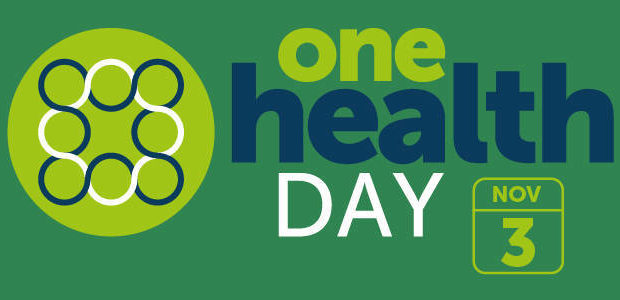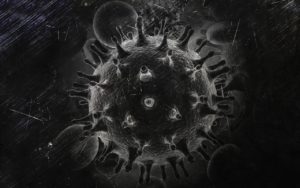
“One Health is the collaborative effort of multiple health science professions, together with their related disciplines and institutions – working locally, nationally, and globally – to attain optimal health for people, domestic animals, wildlife, plants, and our environment.” – One Health Commission
In a world where there is a growing trend to deconstruct everything, or look inwards, it can be a challenge to persuade people to do the opposite and look at the bigger picture. One Health is a concept that asks individuals who would normally work within distinct fields or arenas (such as human medicine, veterinary medicine, environmental health, ecology, public health and health economics) to collaborate, because when it comes to planetary or global health – everything is interconnected. Therefore, many factors need to be addressed together in order to overcome health challenges.
Human-environment-veterinary health are intrinsically connected. Environmental health affects human and animal health through contamination, pollution and changes in climate (ironically, these are often brought about as a consequence of human activities). We have already seen the migration of ‘tropical’ diseases (e.g. West Nile Fever) into temperate regions, and changing climate conditions that lead to the emergence of new infectious agents.

Animal health is affected by human activity e.g. the removal of native habitats and food sources to make way for buildings and roads. Conversely, animals affect human health – many emerging human diseases have originated from animals. HIV, the virus that causes AIDS in humans, is believed to have originated from non-human primates in Africa in the early part of the 20th century.
A recent challenge for both human and animal health is the spread of antimicrobial resistance at an alarming rate. Misuse of antimicrobials for human use and in animal husbandry has driven the increase in antimicrobial resistance, making it more difficult to treat human and animal infections. There is a real concern that in the very near future, antimicrobials will no longer be effective due to resistance. As Stephan Harbarth and colleagues point out in their report Antimicrobial resistance: one world, one fight! it is a global challenge, in which many professionals and even the public have to play a part in fighting. To educate the public about antibiotic resistance, Public Health England have released the below advert.
 It is not all bad news though: animal-human-environment interactions can also be beneficial, such as exposure to furry pets correlating with lower rates of childhood obesity. Humans also benefit from good environmental health and vice versa. Therefore, One Health doesn’t just deal with problems but encompasses ways that we can promote the benefits of human-animal-environment interactions.
It is not all bad news though: animal-human-environment interactions can also be beneficial, such as exposure to furry pets correlating with lower rates of childhood obesity. Humans also benefit from good environmental health and vice versa. Therefore, One Health doesn’t just deal with problems but encompasses ways that we can promote the benefits of human-animal-environment interactions.
We all need to get involved. It is easy to think that One Health is a problem for scientists only, but health professionals, the media, educators, governmental and non-governmental organization and even the general public need to be involved in finding solutions.
To find out how you can get involved with and promote the One Health concept, visit the One Health Commisson, One Health Initiative, and One Health Platform Foundation websites.
- Scientists of the future: Matteo Gregori discusses his research path into Arctic microbiology - 22nd February 2022
- Scientists of the Future: Rebecca Ansorge talks to us about her research on the gut microbiome - 10th February 2022
- Quiz: so you think you know biology? - 6th October 2018
Comments